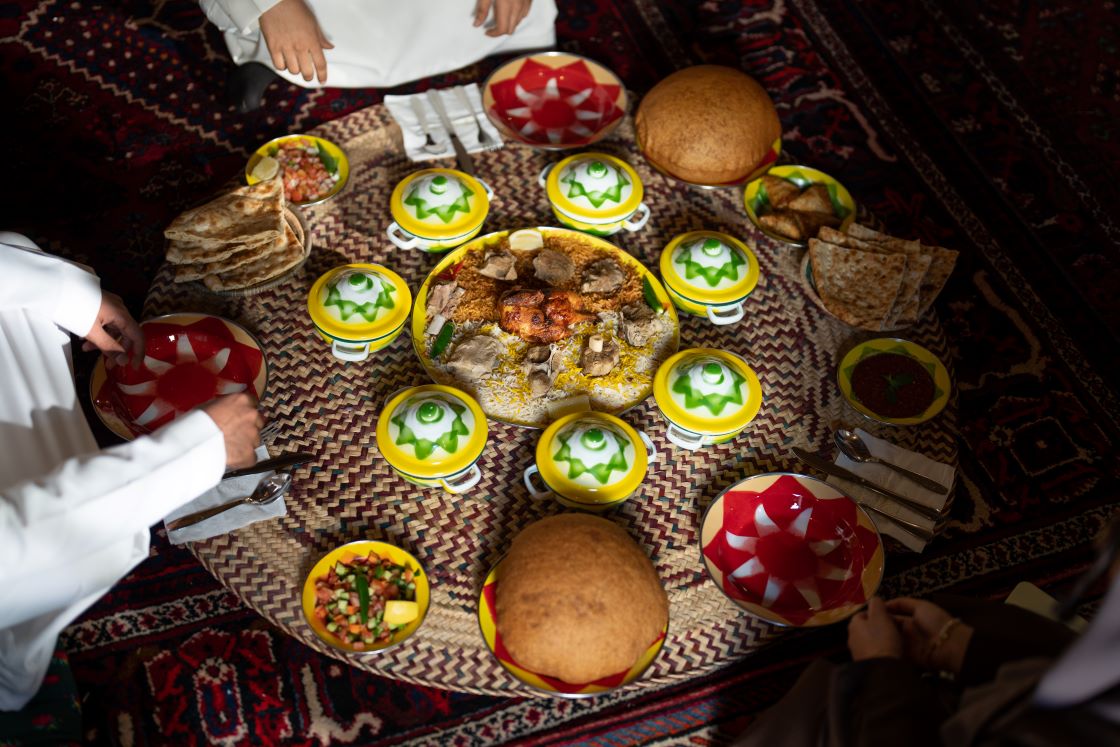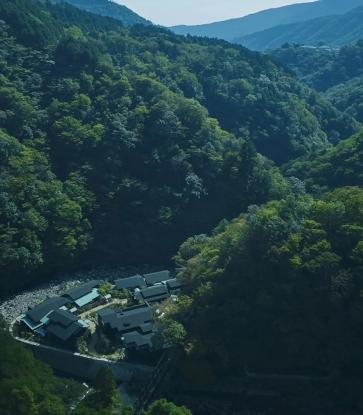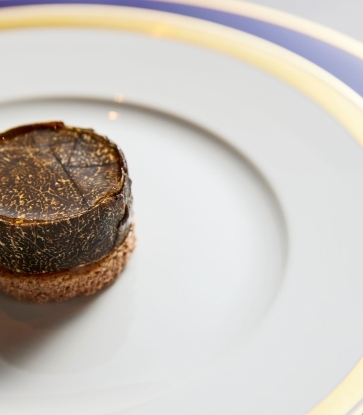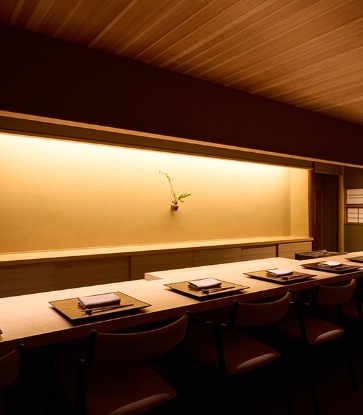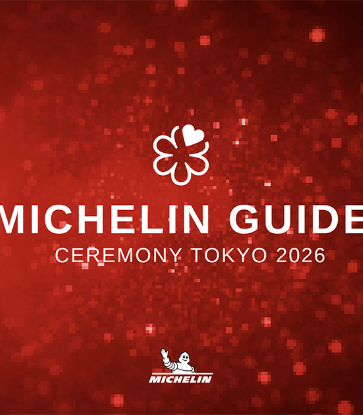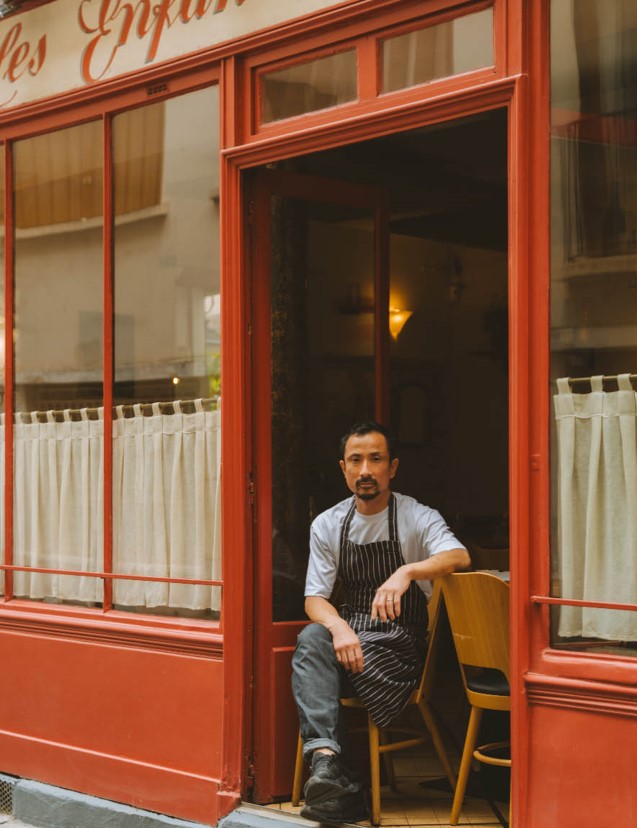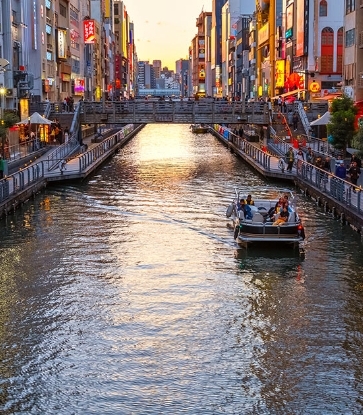“Every time I come back to Ishinomaki, I discover something new. It’s like an inspiration, I take it back with me and it gives me energy to carry on with my work in Singapore,” says Chi Pin Han, 55, the Singaporean chef-owner of Ishinomaki Grill & Sake, who runs it with his wife, also Singaporean. Located at the basement of Palais Renaissance in Orchard Road, the restaurant has been drawing loyal customers for close to five years.
Many diners, especially the Japanese ones checking out the place for the first time, assume from its name that it is run by a fellow countryman from the city of Ishinomaki in Miyagi, northern Japan.

Life-changing Experience
In fact, Chi first stepped foot in Ishinomaki in November 2013, two years after the tsunami struck.
“When disaster struck, my wife went there first as a volunteer and she showed me many pictures of the place. When I finally went there with her, I heard so many stories, that of people seeing with their own eyes how their loved ones were lost to nature’s forces. It made me rethink how my life should be,” he says.
He returned to Singapore not knowing how to continue with his life — but he knew he wanted a change.
“I came back and told my wife I want to strike out on my own. And a few days after coming back, I tendered my resignation,” says the former group general manager of MINOR Food Group Singapore. “Everybody was shocked because I was doing well then. They kept asking me which company I was going to, but I said I’m not going to any company. I’m going to set up my own restaurant. At that point of time, I was already 50 years old.”

He was, however, not alone in this new endeavour, as he had the full support of his wife, Janice, and two good friends, who are now his business partners. And that was how Ishinomaki Grill & Sake was born.
Chi says: “No one will start a new business at that age, especially when you have a stable career. But when I came back, I just felt that I want to remember this land. I want to support this place.”
From then on, Chi has been sourcing for produce and sake from this quiet little coastal city, in a bid to help rebuild this area of Japan which is well known for seafood such as anago and oysters. The fishery port of Ishinomaki, at 876m long, is in fact the largest fish market in Japan and in Asia. This is also one of the world's largest fishing grounds.
Since his first visit in 2013, he has been back six times. “Now when I go back, everything is being rebuilt and it feels like life is back to normal. Of course, I’m very happy to see this but thousands and thousands of life have been lost and I remember receiving a lot from this land. People there taught me very good lessons, such as the meaning of life, what is true friendship, especially when you don’t have anything.”
The first time he went there, he was on a mission trip with his wife. They got in touch with Be One Church, led by American pastor Chad Huddleston, and he saw for himself how foreigners were helping the devastated city stand back up.
“It wasn’t not about preaching. I saw how they stood by the folks there in their daily lives. Initially, the locals were slightly skeptical but with time, the volunteers proved their sincerity and people there gradually opened up.”
The couple, who have three children, gleaned valuable insights after visits to this city torned by disaster and saw how people picked themselves up in the aftermath.
Chi’s wife adds: “Take, for example, the Nozomi Project. It brings womenfolk into a space that encourages them to work on a jewellery craft using pottery that has been found on the ground.”
They also saw first-hand how good-hearted souls came from all over the world to give and share love. The city was torn but humanity’s best was there.

Born Again
To Chi, Ishinomaki is a personal gift which has shown him a different way of life.
“Ishinomaki made me a very different person. When people speak to me now, they tell me I look younger than I used to be. I have become more energetic.”
And it is because he has a newfound purpose in life — to devote himself to what he loves and, at the same time, do good for this place which turned his life around.
“When you start, you have to work doubly hard. I was working non-stop every day in the beginning but I enjoyed it very much. I never dread going to work and I think about what I am going to do every day. My favourite moments are receiving produce — just seeing them inspires me, motivates me and makes me very happy.”
His aim for the restaurant is to expose foodies here further to robatayaki, rather than sushi and sashimi. His menu is focussed on grill items, with an added emphasis on fresh fish from Japan. His attitude towards cooking is also very much geared to simplicity and to let “pure, natural ingredients speak for themselves”.

Chi’s concept was not a challenge to execute in Singapore because he had great support from Japan Fisheries Cooperatives (JF Zengyoren), which introduced him directly to fishermen and fishery ports.
Having lived in Japan at the start of his career, Chi can speak and write Japanese, which helps greatly in communicating with his Japanese partners.
“I think one big difference in how we run our business is the way we procure ingredients. Most restaurants depended on the supplier who will send them a list of what is available for the day along with a quotation. I do it very differently. Because I’m able to connect with local fishery associations, they will reach out to me instead. They will tell me about their catch and ask if I want it. Sometimes, it’s a very rare species I have never seen before and they don’t have this every day. I don’t ask the price and will just bring it in.”
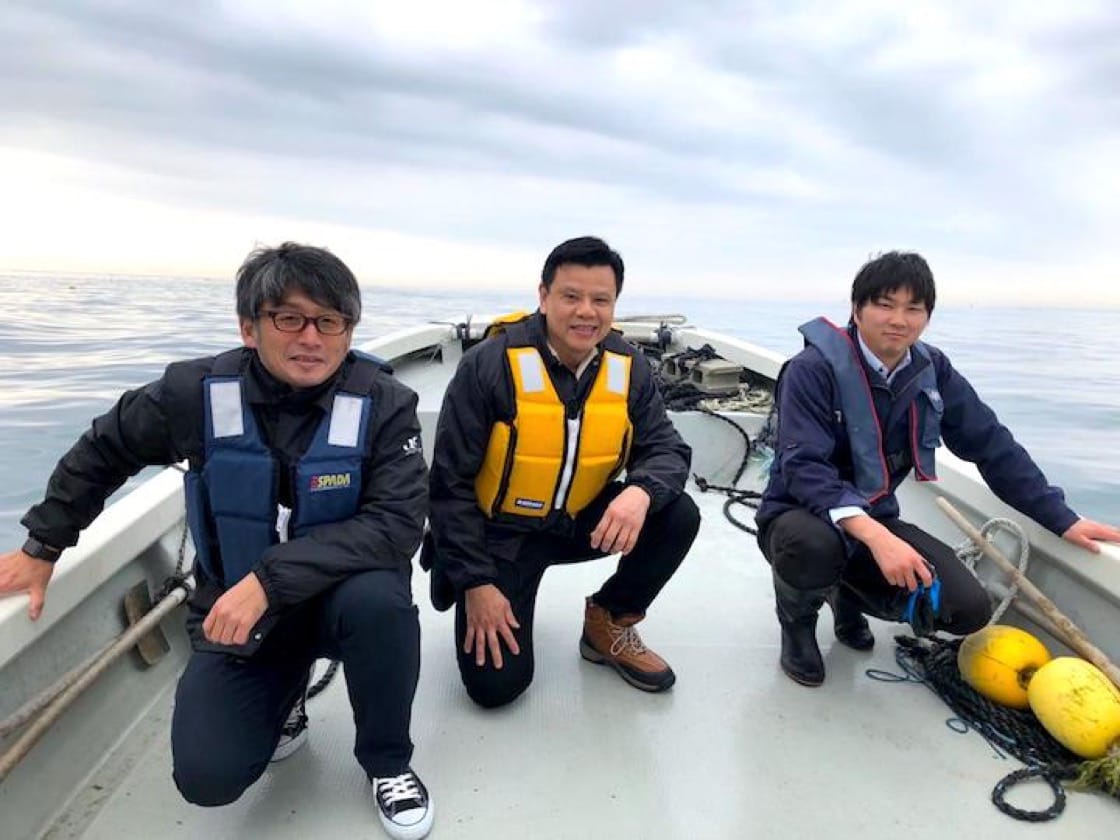
There will then be someone in Tokyo, Sapporo or Fukuoka to send the fish to Singapore. Chi says he sometimes gets a heart attack upon seeing the invoice.
“Because it would be impossible to sell,” he exclaims. “A lot of times, I sell below cost because I don’t think people will buy at that price. But my main aim is not to just sell this for the sake of doing business, but rather, to let my customer enjoy something that they may not find anywhere else. For example, the shark sole or keiji, which is a baby salmon in Hokkaido that is very precious.”
He is especially encouraged when Japanese diners give him good feedback. “They tell me that even in Tokyo, they also cannot find this.”

Having spent 16 years at Keyaki Japanese Restaurant at Pan Pacific Hotel early in his career as a sous chef, he has built solid relationships with his Japanese partners. From time to time, they surprise him by adding amazing ingredients which he did not order.
“Sometimes, they give it to me for free or at a cost price, seeing that I am very passionate. Sometimes, I call and ask them the best way to cook a certain ingredient. But this joy I experience... it makes me young really. I’m very energised when I see these beautiful things and when you taste it, it’s really really wonderful. My wife will take a photo and send it to our regulars who will come to find out for themselves how it tastes. This is the kind of joy you cannot buy with money.”

“I don’t come from a well-to-do family. I was also not highly educated, so money is at the top of my mind. But Ishinomaki gave me a new lease of life,” he says. Life is not about getting your basic needs met and not about working. There are a lot of things in life that matter. And if you trust that tomorrow will be better, it will be better. It’s the perspective. Conversely, if you keep worrying, everything will not turn well. Worry really is paying interest that is not due.”
Seeing Ishinomaki for himself reminds him that, a lot of times, it is fear that is stopping and crippling oneself.
“Fear makes us afraid of moving on. Our fear makes us think we are only this small, we can only do this much or that we are not in the capacity to help someone or listen to someone. When I think of the people over there, I think about how I am going to make an impact on them, on their life also.”

In the past, he did harbour a dream of having his own izakaya, but that was pushed aside as he progressed in his career.
“Until I went to Ishinomaki,” he says. “Hearing their stories made me sit back and think what life is about. Ishinomaki let me find myself and woke me from my dream. At this stage in my life now, I am lucky to find the love of my life. Japanese cuisine seems to be in line with my character. It sort of reflects me, because I always believe in honesty, integrity. And now, through my food, I really like to see people happy and we just want to share our joy with them.”




